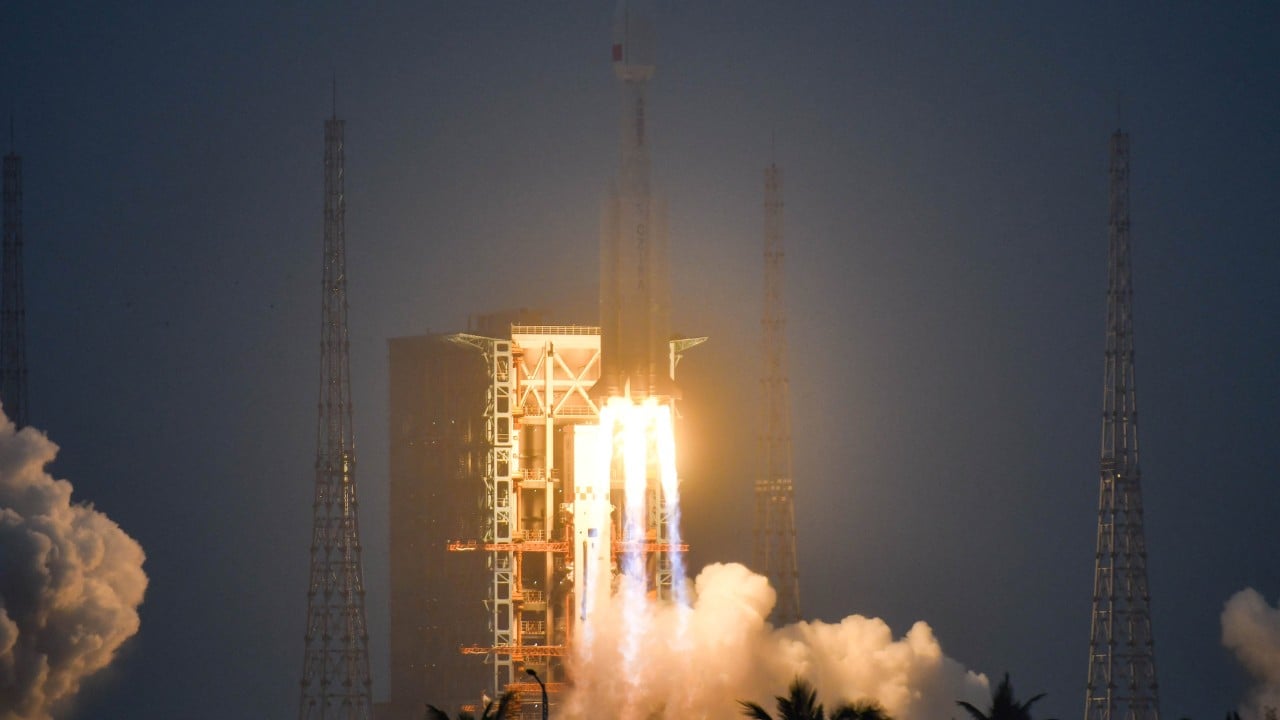The skies above Hainan lit up on Tuesday as China launched a Long March 8A rocket, but the aftershocks of that event were felt hundreds of kilometres away – in the Philippines.
Advertisement
The provinces of Palawan and Basilan were “on high alert” that day for any fallen rocket debris, the Philippine Space Agency (PhilSA) confirmed, igniting anger over what critics have called China’s “wilful pollution” of foreign waters.
PhilSA’s advisory warned that rocket parts were projected to land within three zones: about 85 nautical miles (157km) from Iroquois Reef – known locally as Rozul Reef – 40 nautical miles (74km) from Puerto Princesa in Palawan, and 33 nautical miles (61km) from Hadji Muhtamad in Basilan.
While no debris was expected to fall on land, the agency said it posed significant risks to ships, fishing vessels and aircraft in the area.
With the Philippines located directly southeast of China, debris from Chinese rockets has an increased likelihood of falling within the Philippines’ exclusive economic zone, PhilSA said in a statement provided to This Week in Asia.
Advertisement
“Rockets are usually launched eastward to take advantage of the Earth’s rotation, helping them save fuel and reach orbit more efficiently,” it said. “Launching over bodies of water is also safer since unburnt rocket debris is less likely to hit populated areas.”

